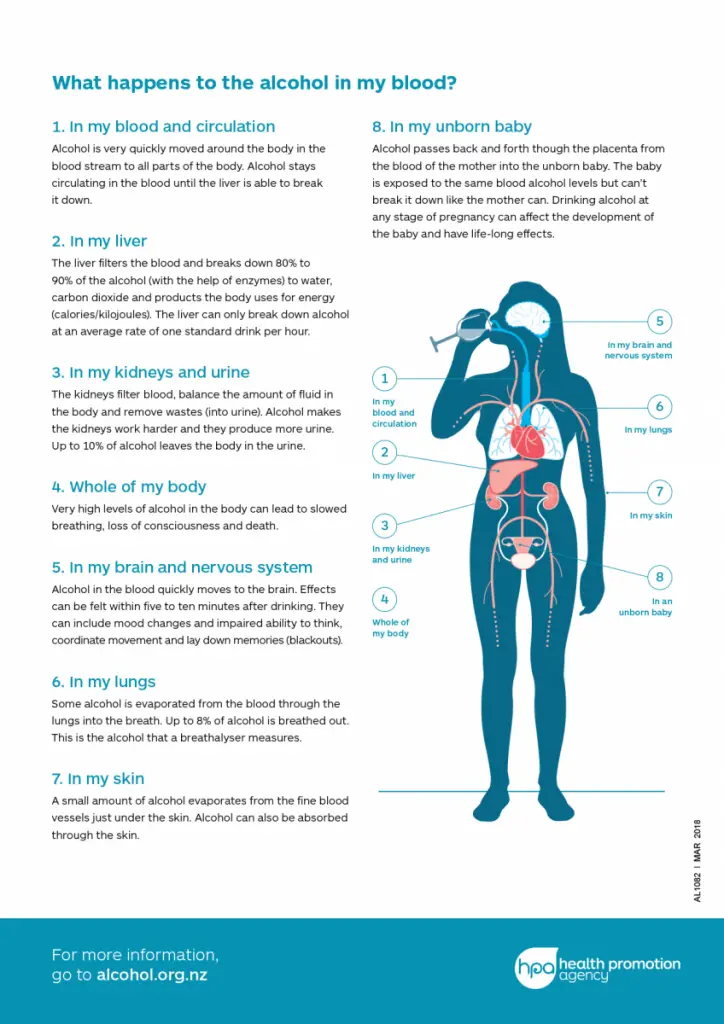How does alcohol make you drunk?
Ethanol, this molecule made of little more than a few carbon atoms is responsible for drunkenness. Often simply referred to as alcohol. Ethanol is an active ingredient in alcoholic beverages. Its simplicity helps it sneak across membranes and nestle into many different notes producing a wide range of effects compared to other clunkier molecules.
So how exactly does it cause drunkenness? and why does it have dramatically different effects on different people?
To answer these questions will need to follow alcohol on its journey through the body. Alcohol lands in the stomach and is absorbed into the blood through the digestive tract especially the small intestine. The contents of the stomach impact our calls ability to get into the blood, because after eating the pyloric sphincter which separates the stomach from the small intestine closes. So, the level of alcohol that reaches the blood after a big meal might only be a quarter that from the same drink on an empty stomach from the blood alcohol goes to the organs especially those that get the most blood flow the liver and the brain.
It hits the liver first and enzymes in the liver break down the alcohol molecule in two steps. First an enzyme called ADH turns alcohol into acetaldehyde which is toxic then an enzyme called ALDH converts the toxic acetaldehyde to non-toxic acetate. As the blood circulates the liver eliminates alcohol continuously. But this first path of elimination determines how much alcohol reaches the brain and other organs.
Brain sensitivity is responsible for the emotional cognitive and behavioral effects of alcohol otherwise known as drunkenness. Alcohol turns up the brains primary break the neurotransmitter GABA and turns down its primary gas the neurotransmitter glutamate. This makes neurons much less communicative and users feel relaxed at moderate doses. User fall asleep at higher doses and can impede the brain activity necessary for survival.
At set doses alcohol also stimulates a small group of neurons that extends from the midbrain to the nucleus accumbens. A region important for motivation like all addictive drugs it prompts a squirt of dopamine in the nucleus accumbens, which gives users a surge of pleasure alcohol also causes some neurons to synthesize and release endorphins. Endorphins help us to calm down in a response to stress or danger. Elevated levels of endorphins contribute to the euphoria and relaxation associated with alcohol consumption.
Finally as the livers breakdown of alcohol outpaces the brain’s absorption drunkenness fades away individual differences at any point in this journey can cause people to act more or less drunk. For example a man and a woman who weigh the same and drink the same amount during an identical meal, will still have different blood alcohol concentrations or BACs. This is because women tend to have less blood, women generally have a higher percentage of fat which requires a less blood than muscle. A smaller blood volume carrying the same amount of alcohol means the concentration will be higher for women. Genetic differences in the livers alcohol processing enzymes also influence BAC and regular drinking can increase production of these enzymes contributing to tolerance.
On the other hand those who drink excessively for a long time may develop liver damage which has the opposite effect. Meanwhile genetic differences in dopamine Garber and endorphin transmission may contribute to the risk for developing an alcohol use disorder. Those with naturally low endorphin or dopamine levels may self-medicate through drinking some people have a higher risk for excessive drinking, due to a sensitive endorphin response that increases the pleasurable effects of alcohol others have a variation in gaba transmission that makes them especially sensitive to the sedative effects of alcohol, which decreases their risk of developing disordered drinking.
Meanwhile the brain adapts to chronic alcohol consumption by reducing gaba dopamine and endorphins mission and enhancing glutamate activity. This means kilo drinkers tend to be anxious have trouble sleeping and experience less pleasure. These structural and functional changes can lead to disordered use when drinking feels normal but not drinking is uncomfortable establishing a vicious cycle so both genetics and previous experience impact how a person experiences alcohol.
This means that some people are more prone to certain patterns of drinking than others and a history of consumption leads to neural and behavioral changes similar to alcohol how someone experiences marijuana depends on a number of factors including for example genetics find out more about the effects and risks of marijuana.

